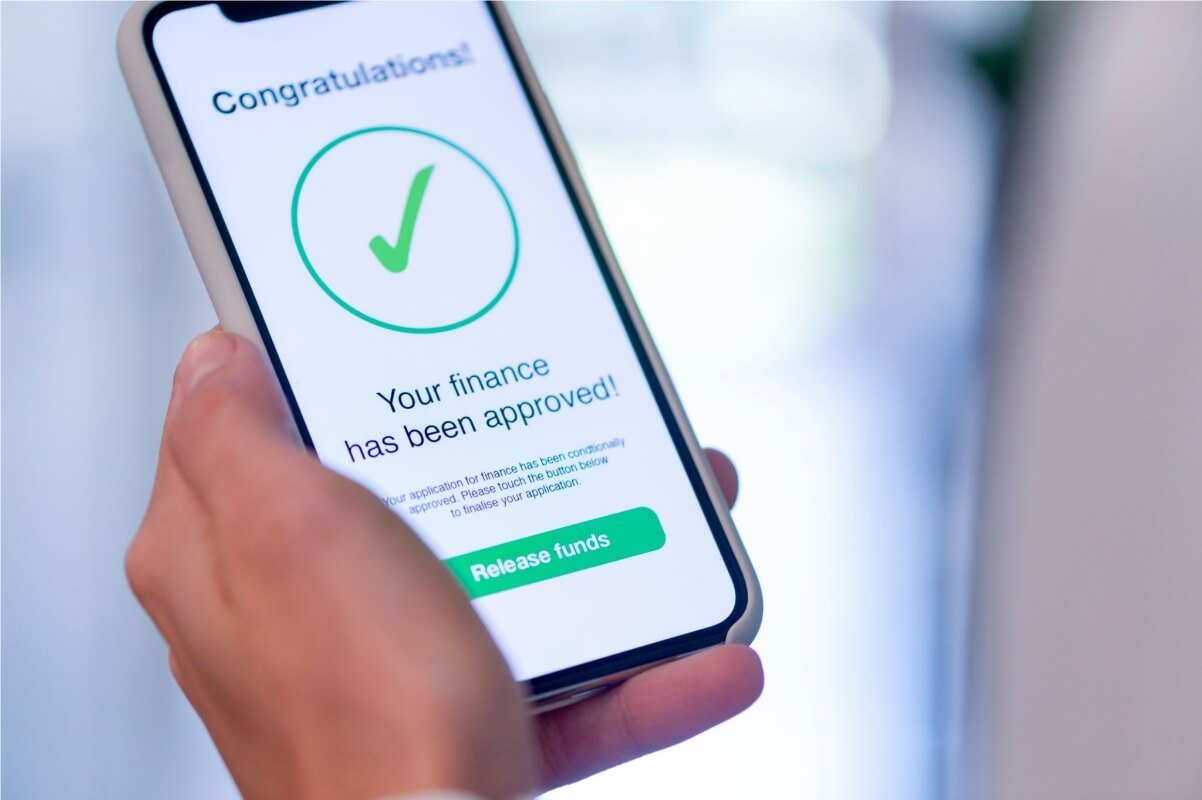Securing a business loan can be a game-changer, providing the necessary capital to expand operations, invest in new equipment, hire employees, or launch marketing campaigns. Whether you’re a startup or an established business, accessing funds is crucial for your success.
In this guide, we will explore the pathways to obtaining business loans ranging from ₦50,000 to ₦5 million in Nigeria. From understanding loan options to navigating the application process, we’ll equip you with the knowledge and strategies to increase your chances of securing the funding your business needs. Get ready to take your entrepreneurial dreams to new heights with our comprehensive insights into obtaining business loans in Nigeria.
How to Get ₦50,000 to ₦5Million Business Loan in Nigeria
If you will like to get a #50,000 to #5 million business loan in Nigeria in Nigeria, there are some processes you need to follow, which have been listed below.
Understand Your Business Needs
Understanding your business needs is a crucial step when seeking a business loan in Nigeria. It involves thoroughly evaluating your financial requirements, identifying the specific areas where capital is needed, and aligning your loan request with your business goals. By gaining a comprehensive understanding of your needs, you can approach lenders with a clear vision and increase your chances of obtaining the right loan for your small or medium-sized business.
Assess Financial Requirements:
Start by assessing your financial requirements in detail. Determine how much capital your business needs to achieve its objectives. This could include funding for various purposes such as:
- Working capital: Ensure you have enough funds to cover day-to-day operational expenses, manage inventory, and handle any unforeseen costs.
- Equipment purchase: If your business requires specialized machinery, tools, or technology, consider the cost of acquiring or upgrading these assets.
- Business expansion: If you plan to expand your operations, open new branches, or enter new markets, calculate the financial resources needed for such endeavors.
- Marketing and advertising: Allocate funds for marketing campaigns, advertising, and promotions to increase brand visibility and attract customers.
- Hiring and training: If you plan to hire additional staff or provide training to existing employees, account for the associated costs.
Analyze Cash Flow:
Examine your business’s cash flow patterns and analyze its financial performance. Determine the inflows and outflows of cash on a monthly and annual basis. This analysis will help you understand your business’s ability to generate revenue, cover expenses, and repay a loan. It will also provide insights into seasonal fluctuations, payment cycles, and any potential cash flow gaps.
Conduct a Cost-Benefit Analysis:
Before seeking a loan, conduct a cost-benefit analysis of the proposed investment or project. Evaluate the potential return on investment (ROI) and assess whether the expected benefits outweigh the costs. Consider the time it will take to recoup the investment and the impact it will have on your business’s profitability. This analysis will help you determine the amount of funding required and the potential risks and rewards associated with the investment.
Prioritize Funding Needs:
After assessing your financial requirements and conducting a cost-benefit analysis, prioritize your funding needs based on their urgency and impact on your business’s growth. Identify the areas where capital infusion will have the most significant positive effect and allocate funds accordingly. This will allow you to present a clear and focused loan request to lenders.
Align Loan Request with Business Goals:
When approaching lenders, align your loan request with your business goals and demonstrate how the funds will contribute to your company’s growth and success. Clearly communicate how the loan will be utilized to achieve specific objectives, such as expanding your product line, entering new markets, or improving operational efficiency. Lenders are more likely to support loan applications that show a strategic alignment between the business’s needs and the loan purpose.
Evaluate Your Creditworthiness
Evaluating your creditworthiness is an essential step when seeking a business loan in Nigeria. Lenders assess your creditworthiness to determine your ability to repay the loan. By understanding and improving your creditworthiness, you can increase your chances of obtaining favorable loan terms and securing the funding you need. Here are key factors to consider when evaluating your creditworthiness:
Review Your Credit Score
Obtain a copy of your credit report and review your credit score. In Nigeria, credit scores are typically provided by credit bureaus such as Credit Bureau Association of Nigeria (CBAN) or CreditRegistry. Your credit score is a numerical representation of your creditworthiness and reflects your credit history, payment behavior, and outstanding debts. A higher credit score indicates a lower credit risk and enhances your chances of loan approval. If your credit score is low, take steps to improve it by making timely payments and reducing outstanding debts.
Assess Your Credit History
Carefully review your credit history to ensure its accuracy and address any discrepancies. Lenders consider your past credit behavior when assessing your creditworthiness. Look for any missed payments, defaults, or late payments that could negatively impact your creditworthiness. If there are any errors, contact the credit bureau to rectify them. Additionally, strive to maintain a positive credit history by consistently making payments on time and managing your debts responsibly.
Calculate Your Debt-to-Income Ratio
Calculate your debt-to-income (DTI) ratio, which measures your ability to manage and repay debts. It is calculated by dividing your total monthly debt payments by your monthly income. Lenders use the DTI ratio to assess your capacity to take on additional debt. Aim for a lower DTI ratio, as it indicates lower risk to lenders. If your DTI ratio is high, consider strategies to reduce your debt burden, such as paying off outstanding debts or renegotiating repayment terms.
Gather Financial Statements and Documentation:
Compile your financial statements, including income statements, balance sheets, and cash flow statements. These documents provide a clear overview of your business’s financial health and stability. Lenders may request these statements to assess your ability to generate income and manage your finances effectively. Ensure that your financial statements are accurate, up-to-date, and reflect a positive financial position.
Improve Your Creditworthiness:
If your creditworthiness is currently suboptimal, take steps to improve it over time. Make timely payments on all outstanding debts, including loans and credit cards. Reduce your overall debt load and avoid taking on additional debt that may strain your finances. Establish a track record of responsible financial management by consistently meeting your financial obligations. Over time, these actions will enhance your creditworthiness and strengthen your loan application.
Research Lenders and Loan Products:
Nigeria offers a range of lenders and loan products tailored to the needs of small and medium-sized businesses. It’s important to research and compare the offerings of different lenders to find the best fit for your business. Consider factors such as interest rates, repayment terms, loan amounts, eligibility criteria, and the lender’s reputation. Some popular options include commercial banks, microfinance banks, development banks, and online lending platforms. Look for lenders who specialize in providing loans to businesses similar to yours and consider their track record and customer reviews.
Read Also: How to Close or Deactivate My Palmpay Account without stress
Prepare a Strong Business Plan:
A well-prepared business plan is essential when applying for a business loan. It demonstrates your understanding of your industry, market, and the financial viability of your business. Your business plan should include a detailed description of your business, information about your target market, analysis of your competitors, financial projections, and how the loan will be used to achieve your business goals. Presenting a solid business plan shows lenders that you have a clear vision for your business and increases your chances of securing a loan.
Gather Required Documentation:
Lenders will require specific documentation to evaluate your loan application. Common documents include:
- Business registration documents: These include your Certificate of Incorporation, Forms CAC 02 and CAC 07, and other relevant incorporation documents.
- Financial statements: Prepare your business’s financial statements, including profit and loss statements, balance sheets, and cash flow statements. These statements provide a snapshot of your business’s financial performance and help lenders assess its financial health.
- Tax identification documents: Provide your Tax Identification Number (TIN) and tax clearance certificates to demonstrate compliance with tax obligations.
- Bank statements: Submit your business’s bank statements for the past few months to give lenders an overview of your cash flow and financial stability.
- Collateral documents: If the loan requires collateral, you will need to provide documentation proving ownership of the collateral, such as property titles or vehicle registration documents.
- Business plan: Include a comprehensive business plan that outlines your business model, target market, competitive analysis, marketing strategies, and financial projections.
Ensure that all your documents are accurate, up-to-date, and well-organized to present a professional loan application.
Apply for the Loan:
Once you have researched lenders, prepared your business plan, and gathered the necessary documentation, it’s time to apply for the loan. Follow the lender’s application process, which may include filling out an application form, submitting the required documents, and attending an interview or meeting with a loan officer. Be prepared to answer questions about your business and provide additional information if required. Present your application professionally and showcase your business’s potential for success.
Review Loan Offers
After submitting your loan application, lenders will review your application and assess your eligibility for the loan. If approved, they will provide you with loan offers specifying the loan amount, interest rate, repayment terms, and any other conditions. Carefully review the loan offers, compare them with your business’s financial needs, and consider the impact on your cash flow. Ensure that you fully understand the terms and conditions before accepting any loan offer.
Accept the Loan and Manage Funds Wisely
If you find a suitable loan offer, accept it and complete the necessary paperwork. Once you receive the funds, use them wisely according to your business plan. Monitor your cash flow, make timely repayments, and maintain open communication with the lender throughout the loan tenure. Proper financial management will not only help you repay the loan but also build a positive credit history for future financial needs.
Top Loan Providers In Nigeria That Can Give Up To N50,000 To 5 Million Naira
There are several loan providers in Nigeria that offer loan amounts ranging from ₦50,000 to ₦5 million to small and medium-sized businesses. These lenders understand the financial needs of entrepreneurs and startups and provide accessible funding options. Here are some notable loan providers in Nigeria that can offer loans within this range:
CBN AGSMEIS Loan
The CBN AGSMEIS Loan, provided by the Central Bank of Nigeria, is specifically designed to support agricultural businesses and promote economic growth in the agricultural sector. It offers affordable financing options with low-interest rates and flexible repayment terms.
Key Features:
- Loan Amount: Up to ₦10 million.
- Interest Rate: 5% per annum.
- Tenor: Up to 7 years.
- Collateral: Collateral requirements apply.
Eligibility Criteria:
- Nigerian citizenship.
- Age between 18 and 45 years.
- Business registration with relevant government agencies.
- Completion of entrepreneurial and agricultural training.
Bank of Industry (BOI):
The Bank of Industry is a government-owned financial institution in Nigeria that focuses on providing funding and support to various sectors, including micro, small, and medium-sized enterprises. They offer diverse loan products tailored to meet the specific needs of businesses.
Key Features:
- Loan Amount: Varies based on the project’s needs and capacity.
- Interest Rate: Competitive interest rates.
- Tenor: Flexible repayment period.
- Collateral: Collateral requirements apply.
Eligibility Criteria:
- Nigerian citizenship.
- Business registration with relevant government agencies.
- Submission of a bankable business plan.
- Proof of cash flow and viability.
Development Bank of Nigeria (DBN):
The Development Bank of Nigeria is a wholesale financial institution established to provide sustainable financing to micro, small, and medium-sized enterprises. They collaborate with participating financial institutions to offer accessible and affordable loans to eligible businesses.
Key Features:
- Loan Amount: Varies based on the project’s needs and capacity.
- Interest Rate: Competitive interest rates.
- Tenor: Flexible repayment period.
- Collateral: Collateral requirements may apply.
Eligibility Criteria:
- Nigerian citizenship.
- Business registration with relevant government agencies.
- Compliance with industry-specific requirements.
- Demonstration of creditworthiness and ability to repay the loan.
NIRSAL Microfinance Bank
NIRSAL Microfinance Bank is a licensed microfinance bank that specializes in providing financial services to micro, small, and medium-sized enterprises. They offer a range of loan products designed to meet the funding needs of entrepreneurs and support their business growth.
Key Features:
- Loan Amount: Varies based on the project’s needs and capacity.
- Interest Rate: Competitive interest rates.
- Tenor: Flexible repayment period.
- Collateral: Collateral requirements may apply.
Eligibility Criteria:
- Nigerian citizenship.
- Business registration with relevant government agencies.
- Submission of a comprehensive business plan.
- Proof of cash flow and viability.
GroFin
GroFin is an impact-driven SME financier that operates in various countries, including Nigeria. They focus on providing finance and support to small and growing businesses. GroFin offers customized loan solutions and expertise to help entrepreneurs expand their operations and achieve their business goals.
Key Features:
- Loan Amount: Varies based on the project’s needs and capacity.
- Interest Rate: Competitive interest rates.
- Tenor: Flexible repayment period.
- Collateral: Collateral requirements may apply.
Eligibility Criteria:
- Nigerian citizenship.
- Business registration with relevant government agencies.
- Submission of a comprehensive business plan.
- Proof of cash flow and viability.
It’s important to carefully review the requirements and key features of each loan provider, ensuring that you meet the eligibility criteria and understand the terms and conditions before applying for a loan.
FAQS
How much can I borrow from FairMoney for the first time?
FairMoney offers initial loan amounts ranging from ₦1,500 to ₦500,000. However, the specific amount you can borrow as a first-time borrower may vary based on your creditworthiness and the lending policies of FairMoney. It’s recommended to check the FairMoney app or website for more accurate information regarding loan eligibility and amounts.
Who can help me with money urgently in Nigeria?
There are several options to explore when you need urgent financial assistance in Nigeria. You can consider reaching out to friends or family members who may be willing to provide you with the necessary funds. Additionally, you can explore various online lending platforms, and microfinance institutions, or even approach your bank for possible emergency loan options.
Where can I borrow money easily?
There are several platforms and institutions in Nigeria that offer easy borrowing options. Some popular choices include digital lending platforms like FairMoney, Carbon, Renmoney, and Palmcredit. These platforms provide quick loan disbursals and have simplified application processes, making it easier for individuals to access funds in a short period.
How do I find someone to give me money?
Finding someone to give you money can be challenging, but there are a few options you can explore. You can reach out to friends, family, or acquaintances who may be willing to lend you money. Alternatively, you can consider approaching microfinance institutions, credit unions, or online lending platforms that connect borrowers with individual lenders.
How can I ask someone to send me money?
When asking someone to send you money, it’s important to approach the conversation with transparency and clarity. Clearly explain your situation and why you need the financial assistance. You can use various methods to request money, such as sending a direct message, making a phone call, or using online payment platforms like PayPal or mobile banking apps to request funds. Be sure to provide the necessary details, such as your bank account information or preferred payment method, to facilitate the transfer.
Conclusion
In conclusion, securing a business loan ranging from ₦50,000 to ₦5 million in Nigeria can provide the necessary financial boost for your small or medium-sized business. By following the steps outlined in this guide, you can increase your chances of obtaining a loan that suits your business needs.
Remember to thoroughly research loan providers, understand their requirements, and prepare the necessary documents and financial statements. Additionally, maintaining a good credit history, showcasing a solid business plan, and demonstrating your ability to repay the loan are key factors in securing funding.
With the right approach, determination, and careful consideration of available options, you can successfully navigate the loan application process and access the financial resources needed to grow and expand your business in Nigeria.






